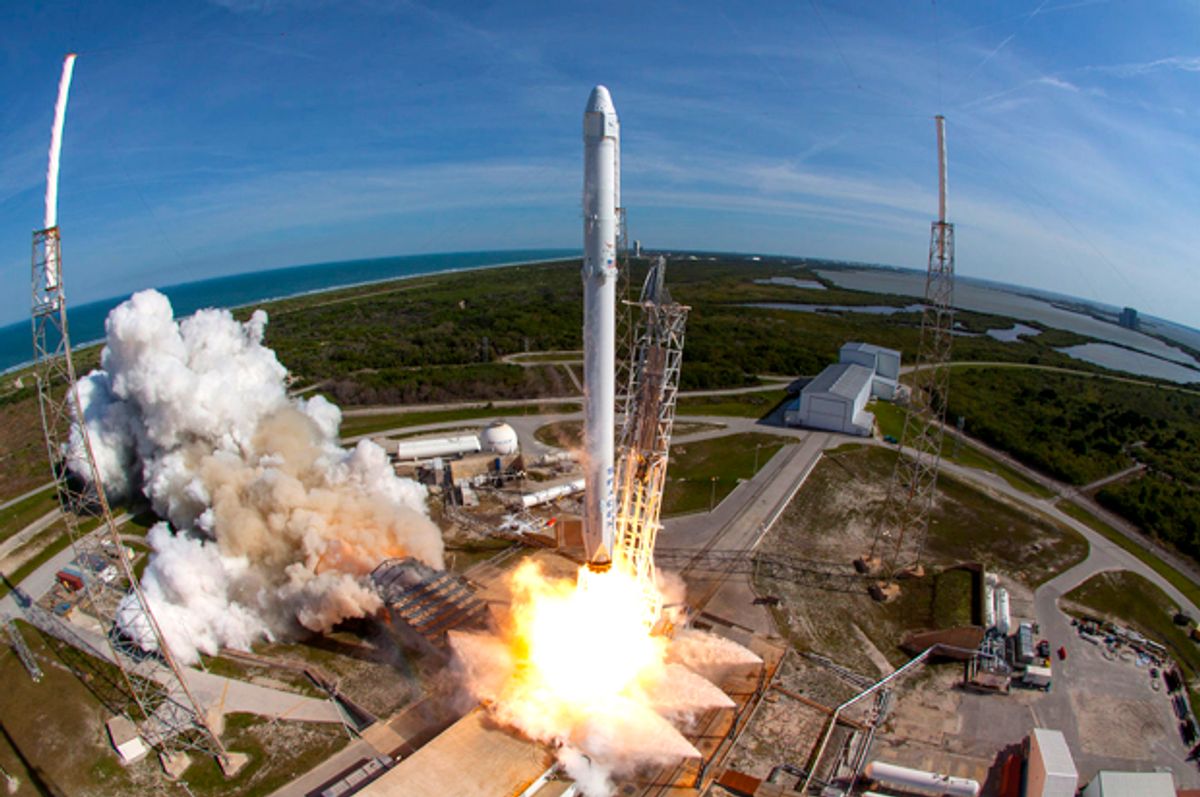SpaceX is pushing back on claims that the Falcon 9 rocket suffered an alleged malfunction following its launch from Cape Canaveral on Sunday.
The launch was thought to have gone well, until reports began to circle around the next day from Ars Technica, Bloomberg and The Wall Street Journal that something went awry and that the classified satellite, named Zuma, was either missing or lost. According to The New York Times, what happened remains unclear, but it’s possible that Zuma — which was built by Northrop Grumman Corporation — never separated from the second stage.
SpaceX President Gwynne Shotwell issued a statement, denying the reports:
For clarity: after review of all data to date, Falcon 9 did everything correctly on Sunday night. If we or others find otherwise based on further review, we will report it immediately. Information published that is contrary to this statement is categorically false. Due to the classified nature of the payload, no further comment is possible.
Since the data reviewed so far indicates that no design, operational or other changes are needed, we do not anticipate any impact on the upcoming launch schedule.
In short, SpaceX says everything worked right with their Falcon 9 rocket. So what happened to Zuma? The odd explanation seems to have to do with a device within the rocket called the payload adapter, the interface between the launcher and satellite.
A November article in Wired revealed the payload adapter for this rocket was constructed by Northrop Grumman too. According to the LA Times a spokesperson for Grumman declined to provide an explanation and said, “This is a classified mission. We cannot comment on classified missions.”
But many were left wondering: could Falcon 9 do “everything correctly” if the payload — which reportedly wasn’t made by SpaceX — failed to operate as planned?
Jonathan McDowell, an astrophysicist at the Harvard-Smithsonian Center for Astrophysics, has been commenting on Twitter about the ongoing mystery. "Normally when you buy a rocket launch, you've paid for 'the payload adapter on the rocket final stage pops the satellite off at the end,'" McDowell wrote. "But on this mission the customer provided its own payload adapter, so separation may be its problem and not SpaceX's problem."
The mission has been a mystery from the start. As the LA Times pointed out, the satellite was constructed for an unknown sector of the U.S. government. The original launch date was also pushed back "to take a closer look at data from recent fairing testing for another customer."
Regardless, some may view SpaceX’s secretiveness and blame-dodging around the incident as disconcerting for a company that hopes to send private citizens into space.

Shares